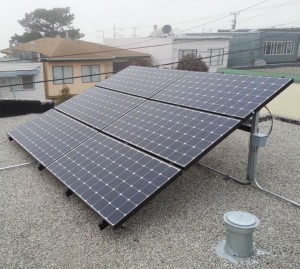How to Differentiate Quality in Solar Panels

High-quality solar panels can maximize both your energy savings and the longevity of your system. Photo: Complete Solar Solution (2013)
When shopping for solar panels, seeing the numerous products available on the market might get you thinking about quality. Is one panel really that much different than another? Is it really worth it to pay more for expensive panels? As with most products, where there’s a variance in price, there’s usually a variance in quality as well. Here are a couple of the major differences between high- and low-quality solar panels:
Panel degradation
One of the primary differences between expensive and inexpensive solar panels is the rate of panel degradation—that is, the amount of production efficiency the panels lose over time. High-quality panels degrade no more than 0.25 percent per year, but cheaper panels tend to degrade much faster, losing as much as 1 to 2 percent of their production efficiency each year. This rate of degradation is subject to exponential increase over time, so it’s no surprise that higher quality panels are worth the extra investment.
Durability
Another attribute that marks a major difference between expensive and inexpensive panels is durability. The thermal stress on a solar panel is extreme, ranging from 150 to 160 degrees during summer to 25 to 30 degrees during winter. High-quality panels are typically equipped with inner expansion joints, which allow them to expand and contract in changing temperatures without cracking. In contrast, many cheaper panels aren’t manufactured to withstand these extremes, resulting in cracked power feeds and a subsequent loss in production.
Warranty
Considering the combined effects of efficiency and durability, it makes sense that the general lifetime of a solar power system is also highly dependent on the quality of its panels. This is typically reflected in the warranty: a high-quality system will usually be guaranteed for 25 years or more, whereas a lower quality system rarely comes with that level of security.